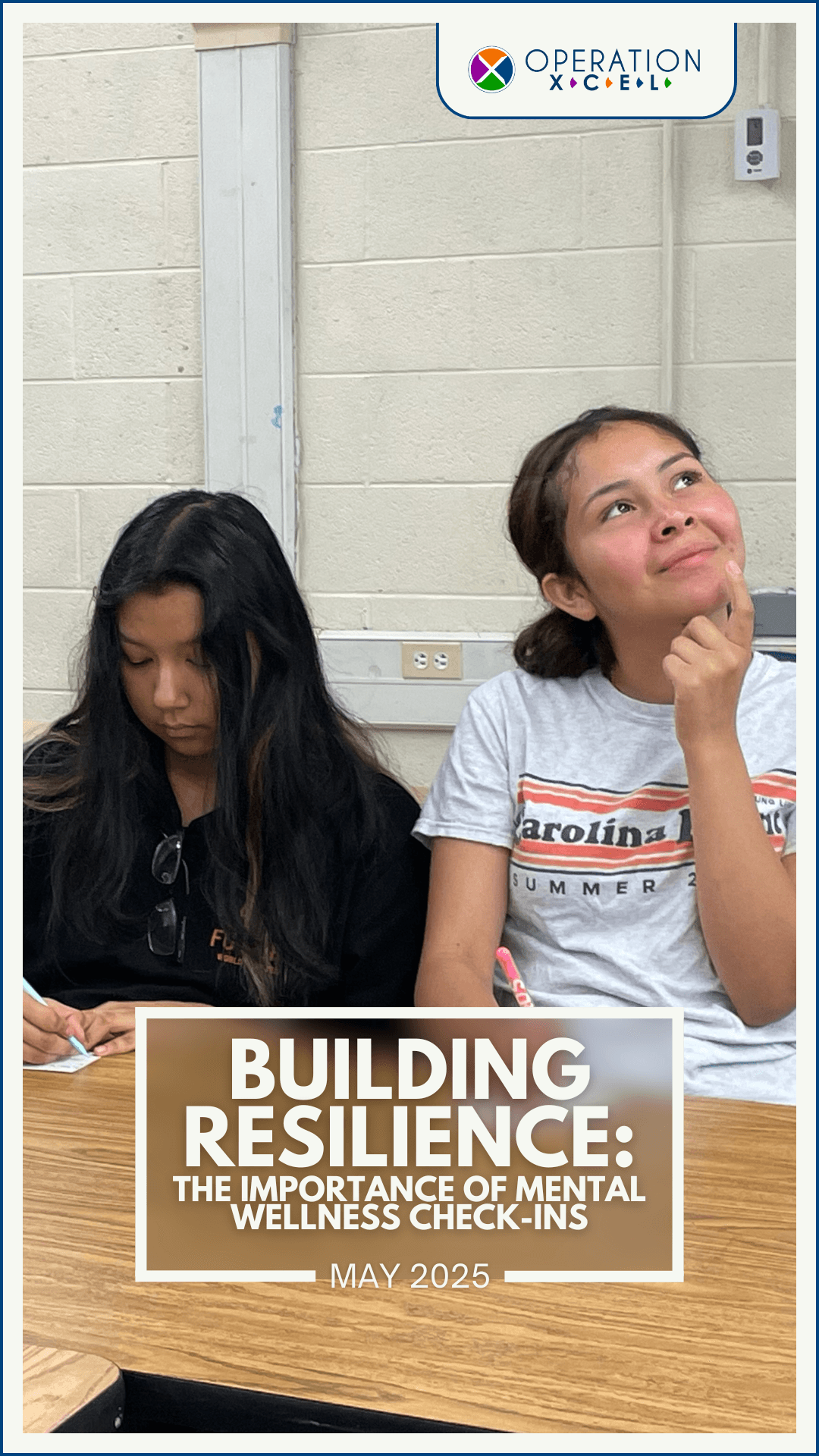
Introduction
Mental wellness check-ins are crucial for children during their formative years, providing a safe space for expressing emotions and fostering resilience. These check-ins help build trust, identify early signs of distress, and support both emotional and academic well-being (Doe, 2020). Mental Health Awareness Month is an ideal opportunity to discuss the topic of mental well-being and emphasize how parents and Operation Xcel staff can assist children in developing life skills through the tools and resources that Operation Xcel utilizes to ensure each child achieves mental wellness.
Parental Role in Mental Wellness
Parents play a critical part in fostering mental health by encouraging open communication, normalising wellness practices, and modelling healthy ways to cope with stress. Recognising behavioural changes and fostering empathy are crucial steps in supporting children (Smith & Lee, 2019).
Strategies for Operation Xcel Staff
Operation Xcel staff can support mental health by implementing social-emotional learning (SEL), organising regular check-ins, and collaborating with mental health professionals. These measures help create a safe and inclusive programme culture (Brown, 2021). Operation Xcel incorporates SEL in all its programs. Operation Xcel has learned that students who gain from SEL demonstrate empathy, kindness, and improved self-esteem and self-confidence.
The Power of Collaboration
Collaboration between parents and staff ensures consistent support for children at home and school. Sharing observations and resources strengthens the network of care and reinforces the importance of emotional health (Taylor et al., 2022).
Conclusion
Mental wellness check-ins are an investment in a child's future, promoting confidence and resilience. Through prioritised collaboration, parents and staff can lay a strong foundation for lifelong well-being (Doe, 2020).
References
Brown, A. (2021). Building emotional intelligence in schools. Education Press.
Doe, J. (2020). Mental health strategies for children and youth. Wellness Publishers.
Smith, R., & Lee, T. (2019). Parenting for mental health. Family Focus Publications.
Taylor, G., Johnson, L., & Carter, M. (2022). Collaborative approaches to mental health in education. Academic Insights.

